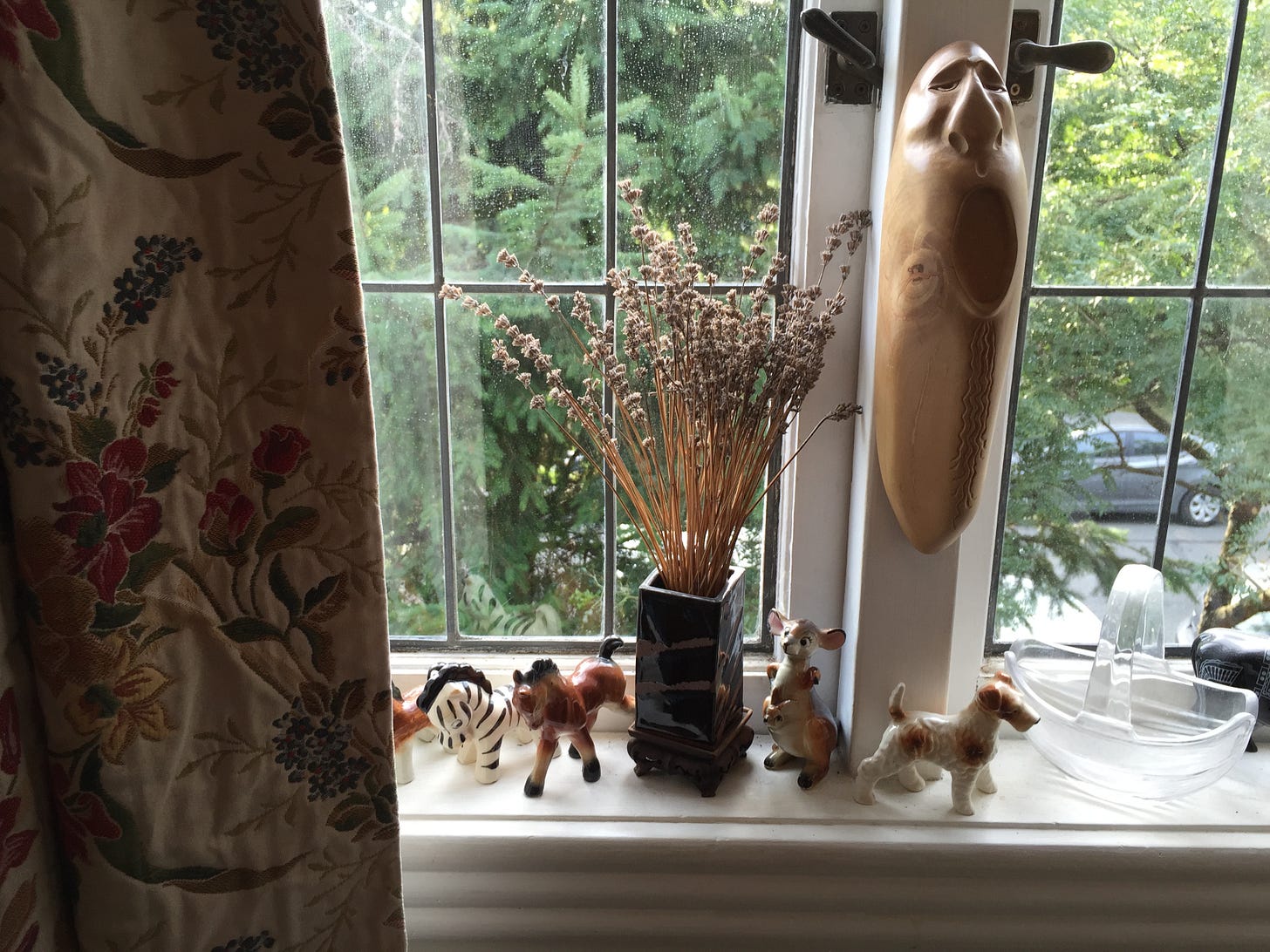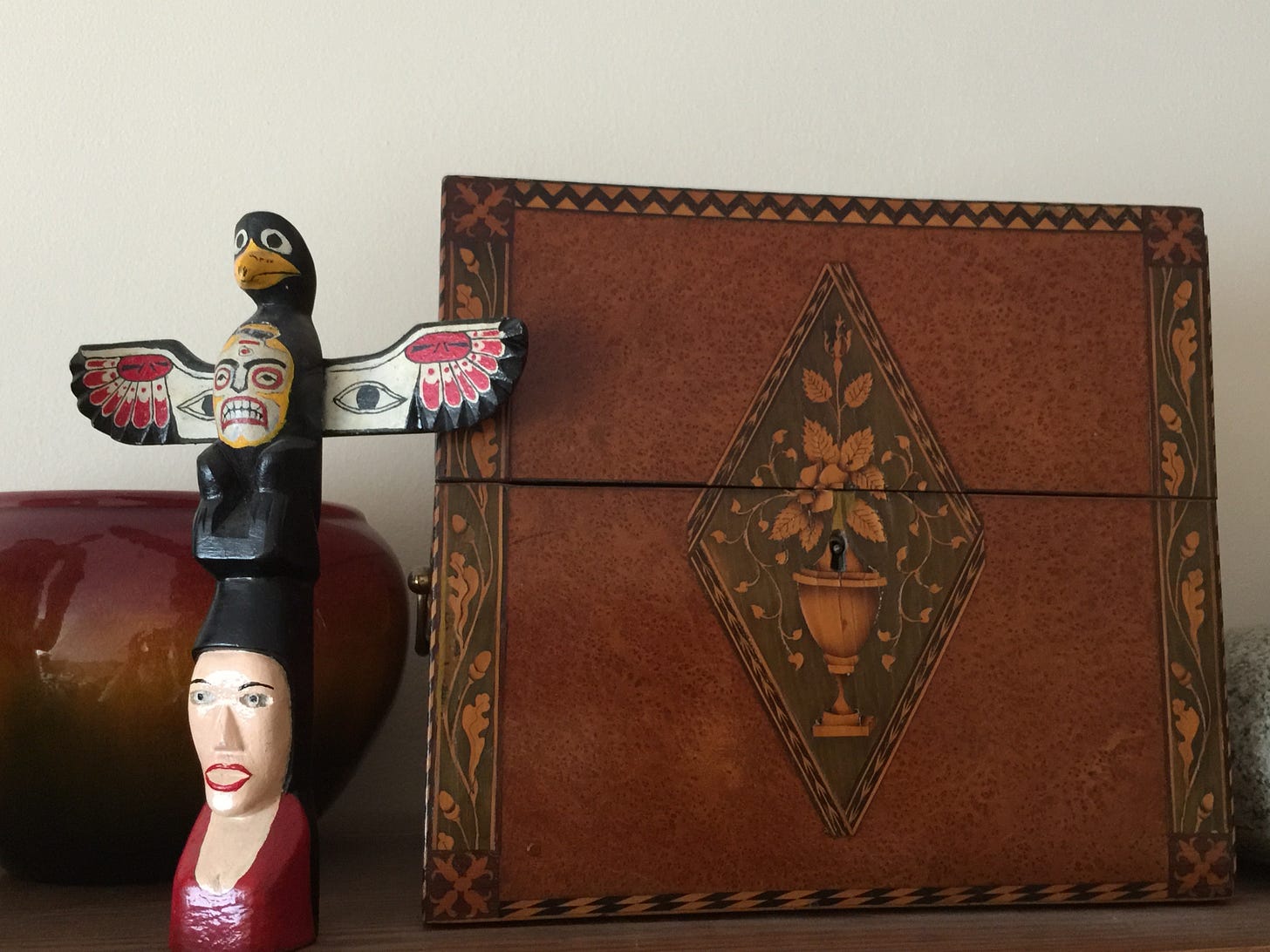Lately, I’ve been thinking about things.
As mothers, our work is both spiritual and profane. We bear the responsibility for our children’s health along with their physical and educational development, certainly. But we are also the guardians of our children’s souls. We also establish the tone, structure, pulse, and atmosphere of the family home, which is directly related to the life of the spirit. The home is the microcosm of the world we want our children to live into. And of course, in our respective roles and ways, both mothers and fathers are homemakers. (Incidentally, my husband Lee and I have created a brand-new 8-week program for men and women, and couples, called Freebirth for Awakened Fathers—get more information here).
*
It is mothering, however—even for mothers who also work outside the home—that tends to demand that a considerable portion of our time and energy be invested in what can sometimes seem like the thankless process of continuously engaging with *things*—navigating things, renegotiating things, organizing, tending to, managing, using, mending, folding, and holding the stuff of this material life.
*
There may be a case for “weaponized incompetence” being one aspect of some men’s seeming ineptitude (and indifference) when it comes to parsing things—whose t-shirts belong to whom, and where the spare bars of soap are kept. But I have come to the conclusion that this is, for the most part, simply a result of men being hardwired to provide, oriented to attend to the frontier and the framework—the big-picture—rather than the sundries. I spent so many years making this a problem, when it really needn’t be. Everything matters and all of it makes up a life—the details and the totality, the abstract and the substantive.
*
Of course, not all women enjoy contending with the prosaic, or are willing to choose to enjoy it, but I actually love this part of mothering—the homemaking aspect. I can happily fold clothes for a good long time, especially if the kids are playing peacefully around me, or hanging out nearby (or even better, folding along with me). I have a particular partiality to textiles—I look forward to some day spending much more of my time quietly doing needlepoint and crochet. I know I have lots of time.
*
Overall, things tend to bring me joy, which is, I know, a bit of an anachronism in this age of the glorification of minimalism (at which I am an utter failure, though I really only tried half-heartedly). It almost feels like an admission to guilt to proclaim my affinity for objects, but I can’t help but enjoy the trappings and symbols of our day-to-day existence. I especially love beautiful, functional, well-designed things that enrich the experience of the everyday.
*
I come by maximalism honestly. I was born into a family of collectors, gatherers, aesthetes, lovers of antiquities and of beauty in general, and I feel mostly very lucky and grateful to have experienced childhood surrounded by art (high and low), storied furniture from an array of eras, and shelves upon shelves of books. Yes, it was a privileged life (and yes, I feel an awareness of the shame I’m sure someone will remind me I should feel at my privilege, anyhoo). I can’t help but wonder if beauty isn’t something that we might benefit from talking more about with our children, and cultivating more of in our homes.
My own childhood memories are peppered with images of beautiful objects, that signify, among other things, the time, attention, and care that was available to be poured into the ceremony of their use. I can still picture the delicate porcelain egg-cups my grandparents would bring out for weekend breakfasts; my granny’s pearl-handled letter-opener; the sets of fine bone china for formal dinners, and the education I received, by osmosis, in how to use the orchestration and arrangement of things to express, or, perhaps more often, to sublimate emotion.
*
I also saw the dark side of possession.





